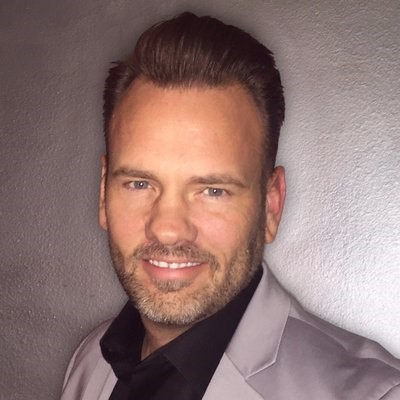
Mark Osborne is an influential communicator, relationship builder, and team leader with hands-on experience researching markets and decision-makers, navigating competitive positioning, and executing Go-To-Market strategies that leverage creative content for Demand Generation, Lead Generation, and Revenue Growth through Account-Based Marketing, Sales, and Customer Advocacy programs.
Key Takeaways
(01:24-06:08) The Impact of Leads on Business
(06:08-14:34) Sales Qualification and Engagement Importance
(14:34-21:37) The Complexity of Product-Led Growth
(21:37-28:37) Marketing Strategies for Scaling Companies
(28:37-31:20) Focus on Growth in Large Enterprises
📱 Apple Podcasts | 🎧 Spotify | 🔗 iHeart
Data-Driven Approaches to B2B Engagement
Mark Osborne, drawing on extensive experience at Kantar working with major global brands like Hulu, Nike, and General Motors, and his current focus at Modern Revenue Strategies, specializes in guiding scaling B2B companies (from $1-2M to $20-100M revenue) through strategic marketing initiatives. His expertise lies in developing data-driven marketing plans, implementing effective lead qualification and nurturing systems, and fostering alignment between marketing, sales, and customer success teams to drive revenue growth. Osborne emphasizes the importance of understanding evolving customer journeys in the digital landscape, building trust through sincerity and competence, and adopting a focused "Occam's razor" approach to prioritize impactful actions for sustainable business growth.
1. The Impact of Leads on Business
Mark Osborne attributed the impetus for his book partly to the COVID-19 pandemic lockdowns, which significantly altered the B2B landscape. He cited a McKinsey observation that the lockdowns accelerated many trends by ten years in just ten months, leaving companies that paused their activities far behind those that adapted. A key trend is the dramatic shift in buyer behavior, with approximately 70% of the enterprise customer journey, especially in software, technology, and services, now occurring digitally before any direct vendor engagement. This contrasts with the past when buyers would directly contact a few potential vendors early in their process.
Osborne also critiqued the outdated notion that every white paper download signifies a qualified lead deserving of equal attention, noting that companies failing to adapt are missing out on the best opportunities and wasting resources on less promising leads, contributing to a negative cycle.
What's happening is the companies that have adapted are pulling the best opportunities out of the marketplace right away. Businesses that haven't adapted are really left with the worst opportunities in the marketplace, and they're then expending a significant portion of their resources chasing those opportunities, which really creates the death spiral. — Mark Osborne
2. Sales Qualification and Engagement Importance
Mark Osborne pointed out a common pitfall where companies treat every engagement equally, lacking a system to score lead quality or opportunity ripeness. He emphasized the critical role of data and technology in understanding content engagement, differentiating between upper-funnel research and lower-funnel buying signals. Companies failing to leverage such insights risk falling behind competitors who use data to qualify leads, nurture prospects, and personalize engagement. This can lead to acquiring less desirable customers who distract from the core business, demand custom work, and are misaligned with the company's offerings, potentially causing a "death spiral."
You probably know better than I how few companies are even tracking engagement with content. There’s the ability to know through tools like RELAYTO if the people are engaging with certain parts of the content that might be more related to buying decisions versus upper funnel researching content which is more informational. Companies that have a monolithic approach to the marketplace and aren't using data and technology to inform that wind up really being left behind. — Mark Osborne
3. The Complexity of Product-Led Growth
Mark Osborne embraced the bow tie analogy, emphasizing the need to consider growth beyond the initial deal from the customer's perspective, which involves recurrent loops. He stressed the importance of using data to understand the customer's stage in their decision-making process, such as the content they consume and their engagement with specific people or review sites. Content should be tailored to guide them to the next stage, focusing on problem prioritization and building a business case rather than immediately advocating for a specific solution.
Osborne highlighted the value of market leaders shaping the market by explaining the business benefits of solving a problem, leading customers through understanding why it's worth solving, which approach to take, and why to stick with that approach. By shaping this buying vision and attracting prospects aligned with this worldview, trust is built through an educational journey, making vendor selection easier once the customer has decided on the problem and the approach. This category-defining approach, Osborne confirmed, is a key focus when helping clients at Modern Revenue Strategies understand and solve their customers' underlying problems.
The business wants to grow after they close that first deal. It's not thinking about it through the lens of the customer. What we have seen be really successful is using data, building an understanding of where they are, moving through the process, and recognizing that there are going to be recurrent loops. — Mark Osborne
4. Marketing Strategies for Scaling Companies
Mark Osborne at Modern Revenue Strategies focuses on helping companies that have achieved initial product-market fit and $1-2 million in revenue scale to $20-100 million. He notes that hiring a full-time CMO at this stage can be costly and complex, so his firm provides outsourced marketing leadership, often creating 90-day marketing plans that yield a significant ROI. Osborne emphasizes the importance of having a marketing plan, as many companies at this stage lack structured approaches to marketing, sales, and customer success. Implementing best-in-class systems is crucial, as it provides structure, improves collaboration, and increases confidence in revenue generation, moving away from reliance on growth hacks and external agencies.
Drawing on his experience with both early-stage companies and large enterprises like Hulu, Nike, and General Motors through Kantar, Osborne finds that working with smaller companies provides a valuable perspective. While large organizations possess significant analytical capabilities, they can often be slow to move and lose sight of core objectives amidst bureaucracy. Early-stage companies, focused on rapid doubling of revenue, tend to prioritize the most impactful and straightforward actions. Osborne brings this "Occam's razor" approach to his enterprise clients, encouraging them to focus on initiatives that directly drive revenue growth and avoid getting bogged down in overly complex or academic exercises. This perspective helps keep the commercial goals in sharp focus, even within robust analytical frameworks built on years of extensive data.
You'd be surprised how many companies, even in that million-a-year place, are still holding their marketing, sales, and customer success together with bubblegum and bailing wire. So, we can come in and create a 90-day marketing plan for them that we generally see has a 10x ROI on that investment of time and that investment of money of working with us. — Mark Osborne
5. Focus on Growth in Large Enterprises
Mark Osborne highlighted that trust in a B2B context is built upon sincerity (doing what you say) and competence (having the ability to do what you say). He emphasized that sincerity is fostered through transparency and by focusing on core capabilities without making unrealistic claims. Shevelenko echoed this, noting that effective sales representatives prioritize problem-solving and authenticity, clearly outlining their capabilities and offering support even when their services aren't a direct fit.
From a B2B branding perspective, we think of trust as a two-sided coin. The two sides of that coin are sincerity and competence. Sincerity means you do what you say, and competence means you have the ability to do what you say. Without both halves of that, you really can't achieve trust. — Mark Osborne
Other Episodes

Godard Abel | CEO of G2
S 01 | Ep 6 Where You Go for Software: Reach Your Peak

Dean Stocker | CEO of Alteryx
S 01 | Ep 8 Turning Your Customers Into Your Biggest Champions

Peter Fader | Co-Founder of Theta CLV
S 01 | Ep 10 Turning Your Marketing Into Dollars